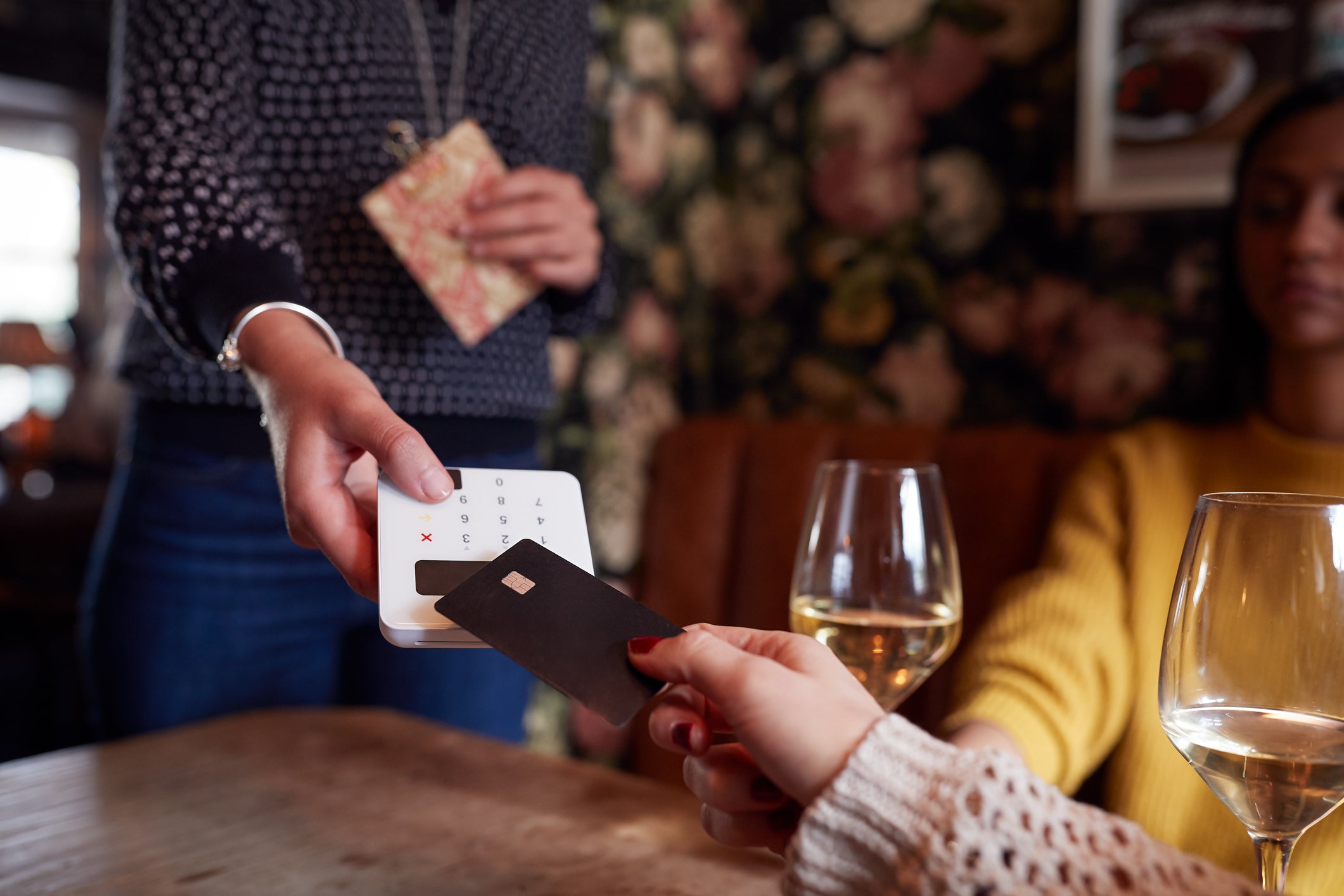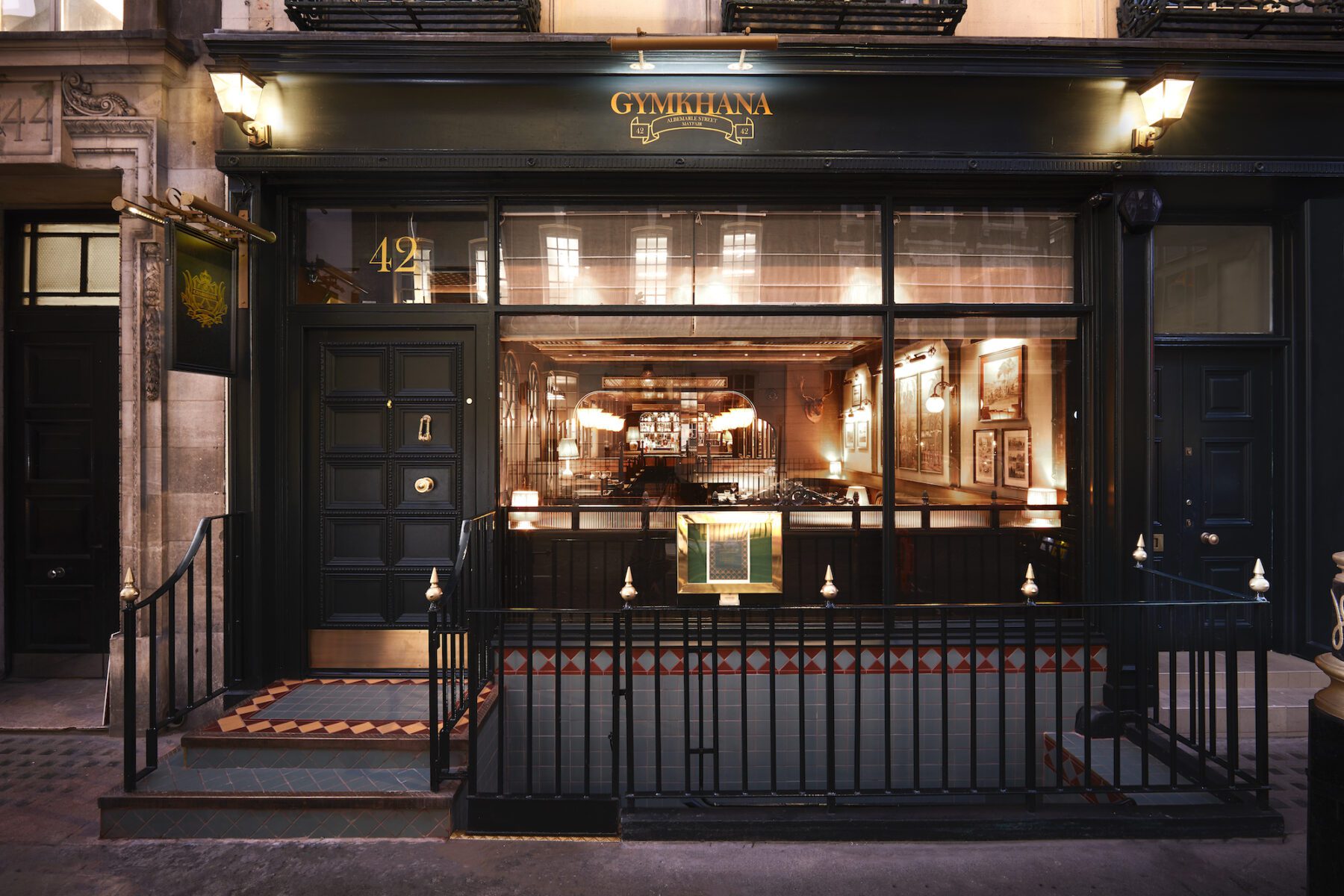Want a table? That’ll be £100 per head before you even order
Diners are being asked to stump up triple figures just for the privilege of booking a table – but with no-shows, influencers and Britain’s wealthiest leaving town, is this a necessary evil or just another way to squeeze customers? Hannah Twiggs investigates


Once upon a time, booking a restaurant was simple: you found a place, called up, made a reservation and – crucially – turned up. Now, in an era where dining out is already an expensive endeavour, restaurants are adding yet another hurdle: minimum spends.
London’s top spots are now enforcing spending thresholds, turning tables into high-stakes investments before you’ve even glanced at the menu. At Gymkhana, the first Indian restaurant in London to receive two Michelin stars, that’s £100 a head. Hutong, a northern Chinese restaurant in The Shard, demands £80 per person on weekends. Chutney Mary, another Indian restaurant, which has been going since 1990, expects you to drop at least £60. Even if you just fancy a quick cocktail and a dessert at Jean-Georges at The Connaught hotel, you’ll need to part with £50 per person to secure a spot. What was once a courtesy booking is becoming a financial commitment.
For restaurants, this is a necessary defence against rising costs, reservation-squatting and social media freeloaders. But for diners, it’s yet another way of extracting cash in an already pricey dining landscape. The real question is: who are restaurants actually fighting? The culprits – no-shows, bots and influencers – or the ordinary customers left holding the bill?
Let’s be clear: running a restaurant right now is no easy task. The hospitality industry has been battered by rising costs, post-pandemic recovery struggles and shifting dining habits. No-shows are rampant, online bots are reselling reservations and ultra-wealthy diners – once reliable big spenders – are leaving the country in droves.
One of the biggest headaches for restaurants is people booking multiple tables across the city and deciding last minute where to actually dine. Chris D’Sylva, owner of Dorian in Notting Hill, calls this “reservation squatting” and has introduced a £25-per-head deposit to stop it. The problem? Unlike theatre tickets, restaurant reservations are free to make, meaning diners feel no real obligation to commit. This leaves restaurants with empty tables and lost revenue.
And while you might assume that walk-ins can fill the gaps, the reality is that fewer people are casually dropping into restaurants these days. Consumers, faced with their own financial pressures, are dining out less frequently, if not choosing where to spend their money more carefully. On top of that, many restaurants don’t even allow walk-ins – some operate exclusively on a reservation basis, now with a charge attached. The spontaneous dinner out is becoming an endangered species, replaced by bookings made weeks in advance, sometimes at a cost before you’ve even set foot in the door.
High-end restaurants are also facing a new kind of scalping: online bots snapping up reservations, only to resell them for profit. Gymkhana cited reservation bots as one of the key reasons behind its new £100-per-head minimum spend. Realistically, trying to spend less than £100 at Gymkhana is like trying to leave a pub after “just one pint” – possible in theory, but unlikely in practice. If you actually show up, the minimum spend is essentially just a deposit you’ll end up using. But is that fair? For most diners, who’ll happily order a starter, main and a cocktail or two, if not the full-whack £140 tasting menu, it won’t matter. But if you just fancy a couple of dishes and a beer, tough luck – you’ll have to splash out or eat somewhere else.
Then there’s the flight of Britain’s ultra-wealthy. In 2024, the UK government cracked down on tax perks for non-domiciled residents, prompting 10,800 millionaires to leave the country. These were exactly the kind of diners who wouldn’t think twice about splashing out on caviar and château margaux. With their departure, restaurants are left trying to make up for lost big spenders – and the rest of us are footing the bill.

From April 2025, national insurance costs for employers will soar. In real terms, that means a restaurant with 30 staff will have to find an extra £100k per year. For a franchise with 300 employees, say, that jumps to £1m. This, combined with rising food costs and rent, is forcing restaurants to find ways to secure revenue – minimum spends being one of them.
Restaurants are also sick of social media personalities looking for free meals. Dorian along with Hugh Corcoran (chef and proprietor of The Yellow Bittern) have both called out influencers sliding into their DMs with requests for comped dinners. Dorian even posted an exchange with an influencer asking for a collaboration, responding with: “We’re introducing a collab tax on top of the full price menu if you’re interested.” Surprisingly, they weren’t. Corcoran, meanwhile, exposed a so-called luxury fashion brand for making a big reservation, failing to confirm, then ghosting them entirely on the day. For some restaurants, minimum spends might also be a way of keeping the blaggers at bay.
I wonder if whatever restaurateur is writing in favour of no minimum spending would be happy for me to book a table of eight, order some tap water and proceed to use the restaurant like my own living room. Of course not, it is completely ludicrous and disingenuous to say you accept no minimum spend
Corcoran also pointed out that the only thing worse than arguing in favour of a minimum spend is pretending restaurants should have none at all. “I wonder if whatever restaurateur is writing in favour of no minimum spending would be happy for me to book a table of eight, order some tap water and proceed to use the restaurant like my own living room,” he wrote on Instagram. “Of course not, it is completely ludicrous and disingenuous to say you accept no minimum spend.” But he also made it clear he wouldn’t be introducing one himself, calling the further monetisation of dining out “deplorable”, adding: “There is a solution to this all – order as if you enjoy eating and drinking!”
While restaurants have valid reasons for implementing these policies, the people actually paying for it aren’t the no-shows, the bots or the influencers – it’s the regular customers. Ultra-wealthy non-doms disappear to Monaco and suddenly we’re the ones being told we can’t book a table unless we commit to spending £100. It’s a financial burden shifting downwards, from absent millionaires to the average Londoner just trying to enjoy a meal out.
Rising prices, service charges and expected tips mean London restaurants are already among the most expensive in the world. In fact, £100 a head is fast becoming the norm, whether you’re dining at a Michelin-starred establishment or just somewhere that takes itself a bit too seriously. It’s no longer just a splurge meal – it’s a Tuesday night catch-up with a friend where a couple of cocktails and a steak push you into triple digits before you’ve even thought about dessert. Minimum spends add yet another financial barrier, turning dining out from a treat into an investment.
The big question is whether this will work – or whether customers will start avoiding restaurants with minimum spends. This isn’t the first time restaurants have imposed extra charges on diners. In 2023, several establishments introduced solo diner charges, sparking controversy. One such example was Café Royal, which imposed an extra fee on solo guests, arguing that single diners take up valuable table space that could otherwise be occupied by multiple paying customers. The backlash was swift, with many criticising the move as exclusionary and unfair. If minimum spends are now following in these footsteps, the question remains: will diners simply accept them as a necessary evil, as part of London’s fine dining landscape, or will they push back?
The Araki, Mayfair’s ultra-luxury sushi restaurant, already charges £310 per head up front. The US is doing it too – booking platforms like Tock and Dorsia are already setting minimum spends across high-end restaurants. The latter has now launched in the UK, with leading London restaurants such as Straker’s, LPM, Akub, Bouchon Racine, Lita and The Barbary already signed up. If it works there, it may well stick here.
Restaurants have legitimate frustrations – no-shows, spiralling costs, influencers who want free food – but their solution is punishing the wrong people. While minimum spends might deter influencers and no-shows, they also risk alienating the loyal diners who actually want to eat there. At some point, customers will decide whether these price walls are worth climbing – or if they’d rather just go somewhere else. Because let’s be honest: minimum spends might keep the blaggers out, but at this rate, they might just keep everyone else out too.
Join our commenting forum
Join thought-provoking conversations, follow other Independent readers and see their replies
Comments